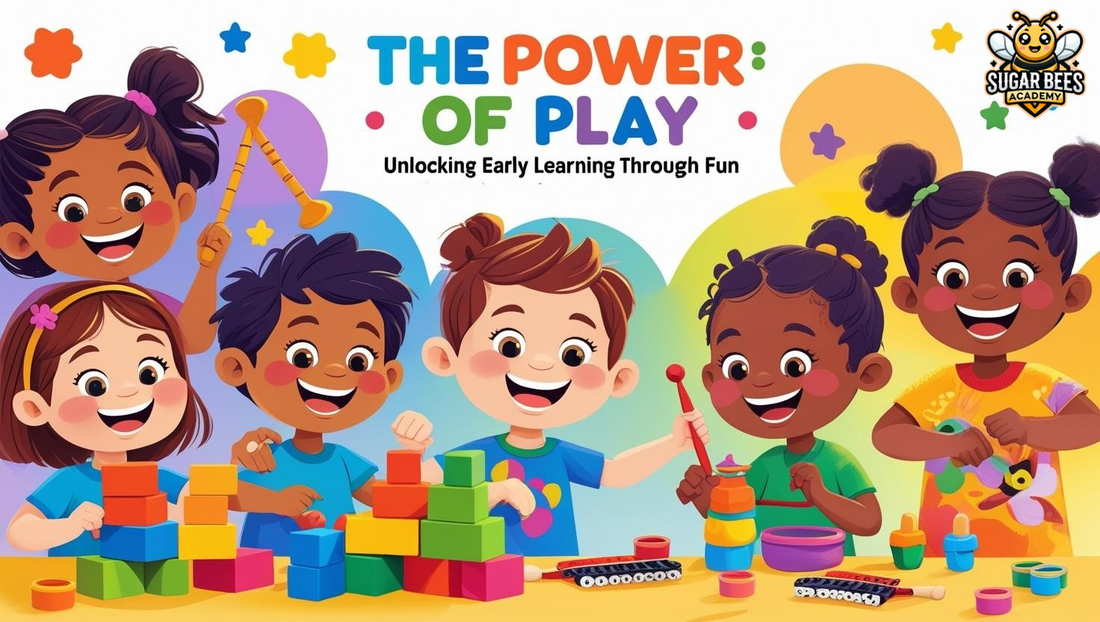
The Power of Play: Unlocking Early Learning Through Fun
Share
The Power of Play: Unlocking Early Learning Through Fun
In the realm of early childhood education, play is far more than mere recreation—it’s a vital component of learning and development. At Sugar Bees Academy, we recognize that through play, children build foundational skills that support academic success and personal growth.
⸻
Understanding the Role of Play in Learning
Play-based learning is an educational approach that uses play as the primary method for teaching. This method respects children’s natural curiosity and allows them to explore, experiment, and understand the world around them in a safe and engaging environment.
Research supports the effectiveness of play-based learning. According to the National Association for the Education of Young Children (NAEYC), guided play—where teachers incorporate learning objectives into playful activities—can lead to significant gains in vocabulary and spatial skills .
⸻
Benefits of Play-Based Learning
1. Enhances Cognitive Development
Through play, children develop critical thinking and problem-solving skills. Activities like building blocks or role-playing scenarios encourage them to think creatively and make decisions independently.
2. Builds Social and Emotional Skills
Engaging in group play teaches children how to communicate, share, and empathize with others. These interactions are crucial for developing emotional intelligence and forming healthy relationships .
3. Fosters Resilience
Play often involves challenges and setbacks, such as losing a game or constructing a tower that falls. These experiences teach children perseverance and how to cope with frustration, building resilience that will serve them throughout life.
4. Encourages Physical Development
Active play, like running or climbing, helps develop motor skills and overall physical health. Such activities are essential for young children’s growth and well-being.
⸻
Implementing Play-Based Learning at Sugar Bees Academy
At Sugar Bees Academy, we integrate play into our curriculum to create a dynamic and engaging learning environment. Our approach includes:
• Structured Play Activities: Designed with specific learning outcomes in mind, these activities guide children toward educational goals while keeping the experience enjoyable.
• Free Play Opportunities: Allowing children to choose their activities fosters independence and creativity.
• Community Engagement: We involve families and the broader community in our programs, recognizing that learning extends beyond the classroom.
⸻
The Importance of Unstructured Play
While structured activities are valuable, unstructured or “free” play is equally important. It provides children with the freedom to explore their interests, make decisions, and learn at their own pace. Experts warn that overscheduling children with extracurricular activities can lead to stress and burnout, emphasizing the need for balance and downtime .
⸻
Conclusion
Play is a powerful tool in early childhood education, fostering learning, resilience, and a sense of community. By embracing play-based learning, we prepare children not just academically, but also socially and emotionally, equipping them with the skills needed to navigate the complexities of life.



